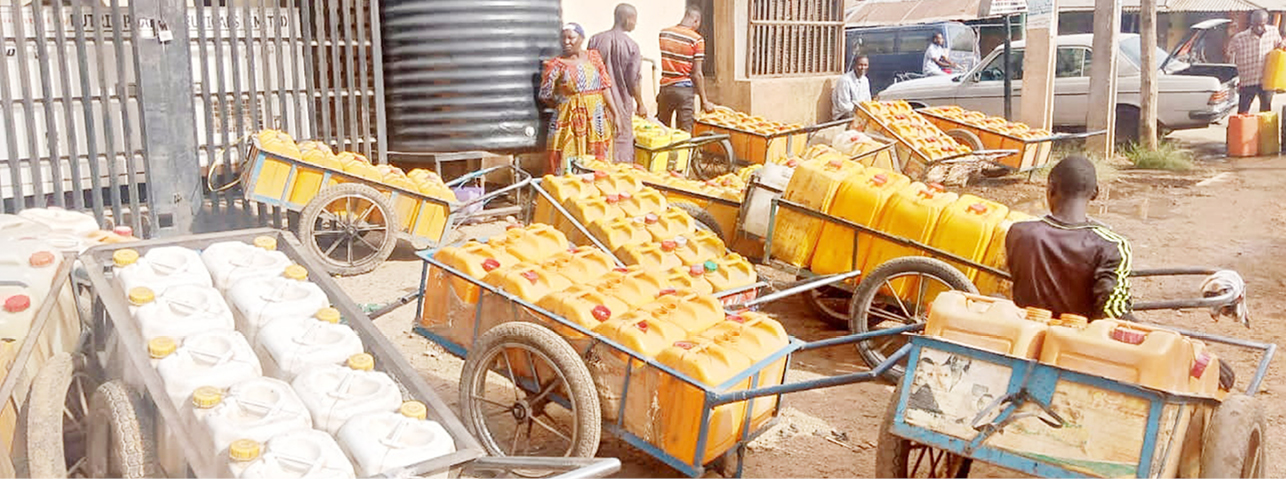Tackle water scarcity in Jos
Jos, the capital city of Plateau State, has long grappled with the persistent issue of water scarcity leaving residents to endure the consequences of insufficient water supply from the body responsible. The deficiency of functional boreholes and wells further compounds the challenge, painting a grim picture of daily life for the city’s inhabitants. The city, […]

Water vendors sourcing water from a borehole at old Bukuru Park, Jos
Jos, the capital city of Plateau State, has long grappled with the persistent issue of water scarcity leaving residents to endure the consequences of insufficient water supply from the body responsible.
The deficiency of functional boreholes and wells further compounds the challenge, painting a grim picture of daily life for the city’s inhabitants.
The city, despite being blessed with natural water sources, finds itself in the grip of a water crisis. Government’s efforts to address this issue have fallen short, with inadequate infrastructure and supply systems unable to meet the teeming demand.
To effectively bring an end to the menace, the government must prioritise infrastructure development, including the construction of water treatment plants and distribution networks to ensure equitable access to clean water across the city.
Implementing and enforcing water management policies and regulations can help curb wastage and ensure responsible usage of available resources.
Engaging with local communities to understand their needs and involve them in decision-making processes can foster a sense of ownership and accountability in water management initiatives.
On the other hand, well-to-do individuals and private companies operating in Jos should integrate water provision mechanism and sustainability practices into their corporate social responsibility initiatives.
Collaborating with government agencies and NGOs can amplify the impact of private sector efforts, leveraging resources and expertise to address water scarcity more effectively.
Empowering residents with knowledge about water conservation and hygiene practices can promote responsible usage and reduce strain on limited water resources.
Supporting grassroots initiatives aimed at water conservation, such as community-led well drilling projects or water purification programs, can foster resilience and self-sufficiency within our neighborhoods.
By implementing comprehensive solutions that span governmental, private, and community sectors, the city can break free from the cycle of scarcity and ensure a sustainable water future for generations to come.
Usman Muhammad Salihu wrote from Jos
